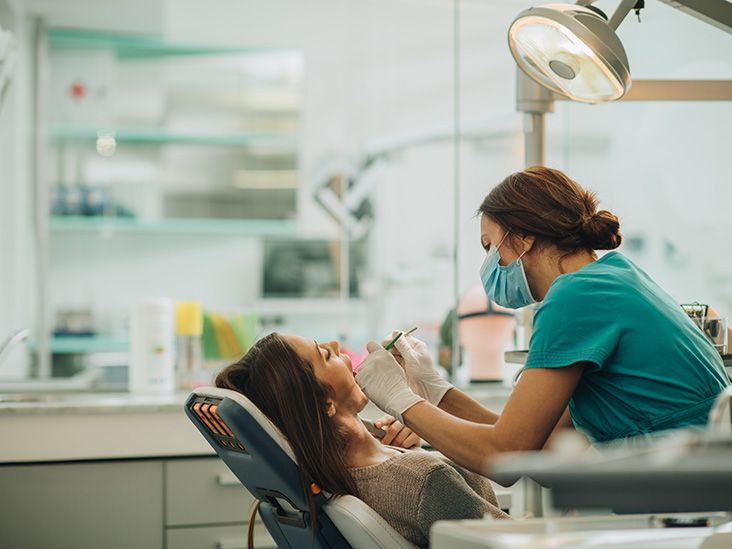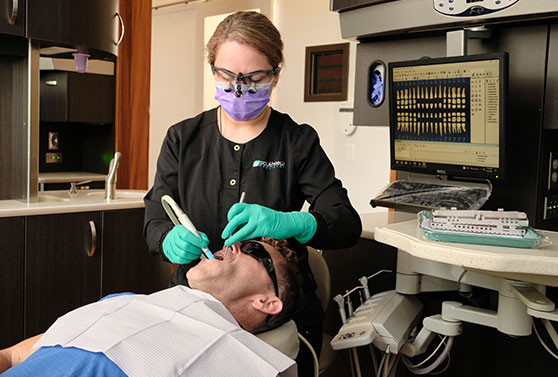Common Questions Regarding Dental Veneers Answered
Oral veneers have actually ended up being a progressively popular option for those seeking to boost their smiles, yet several individuals continue to be unclear concerning different elements of their use. Trick inquiries often arise pertaining to the application procedure, longevity, and possible threats related to these cosmetic enhancements. Moreover, the distinction in between porcelain and composite veneers can significantly influence one's option. As we check out these typical questions, it comes to be necessary to think about not just the advantages however also the effects of choosing oral veneers in quest of a much more certain appearance. What aspects should one consider before making such a choice?
What Are Dental Veneers?
Oral veneers are thin, customized coverings crafted from porcelain or composite material that are made to cover the front surface area of teeth. These dental prosthetics offer both useful and aesthetic objectives, supplying an option for numerous dental imperfections, including discoloration, chips, gaps, and imbalance. By sticking to the teeth, veneers can substantially enhance the total look of a smile, creating a more uniform and attractive appearance.
Porcelain veneers are especially favored for their all-natural translucency and discolor resistance, making them an ideal selection for people looking for durable outcomes. In contrast, composite resin veneers are normally much less expensive and can be applied in a solitary visit, however they might not offer the same longevity as porcelain choices.
The choice to choose oral veneers commonly stems from a desire for aesthetic renovation, however people need to additionally take into consideration variables such as the longevity of the product, upkeep requirements, and the possible demand for tooth reduction (Dental Veneers). Ultimately, dental veneers represent a efficient and functional option for attaining a radiant smile, accommodating private aesthetic needs while promoting confidence and self-confidence
How Are Veneers Applied?
The application procedure for veneers calls for cautious preparation and accuracy to ensure ideal outcomes. The procedure usually begins with a thorough examination, where the dentist examines the person's oral wellness, reviews desired results, and figures out the ideal type of veneers, whether porcelain or composite material.
Once the treatment plan is developed, the dental expert prepares the teeth by getting rid of a slim layer of enamel, generally regarding 0.5 mm to 1 mm, to fit the veneer. This action is important as it guarantees a proper fit and protects against the veneers from showing up bulky - Dental Veneers. After preparation, impressions of the teeth are required to create personalized veneers that match the person's one-of-a-kind dental structure and visual preferences
While the permanent veneers are being produced in a dental lab, temporary veneers might be placed to shield the prepared teeth. When the irreversible veneers are prepared, the dental professional will very carefully bond them to the teeth utilizing a solid dental adhesive.
What Are the Conveniences?

In addition, veneers are understood for their sturdiness and resistance to discoloring compared to all-natural teeth. Made from high-grade products such as porcelain or composite resin, they can maintain their look for many years with correct care. This longevity makes them a practical financial investment in one's oral appearance.
Along with visual renovations, veneers can also add to enhanced dental wellness. By covering damaged or damaged teeth, they can supply additional assistance and protection, assisting to stop more decay or degeneration. This safety element can lower the demand for extra substantial oral their explanation treatments in the future.

How Long Do They Last?
With appropriate treatment and upkeep, oral veneers can last anywhere from 10 to 15 years, making them a durable solution for improving one's smile. The longevity of veneers largely depends on the material utilized, the top quality of the initial placement, and the patient's adherence to oral health techniques.
Porcelain veneers are understood for their toughness and resistance to discoloration, typically lasting closer to the 15-year mark when cared for properly. Composite veneers, while a lot more budget-friendly, might require substitute sooner, usually within 5 to one decade due to their sensitivity to put on and discoloration.

Additionally, wearing a mouthguard throughout sporting activities or nighttime can provide extra security. Eventually, while veneers provide a significant aesthetic improvement, their long life is considerably influenced by the commitment to proper oral care and regular examinations with an oral specialist.
Exist Any Threats?
Considering the transformative effects of dental veneers, it's crucial to recognize the possible risks connected with their application. While veneers can boost the look try this site of teeth, the treatment entails the elimination of a slim layer of enamel, which can enhance tooth level of sensitivity and vulnerability to decay.
One significant risk is the opportunity of inappropriate placement or fitting, causing discomfort, bite imbalance, and even damage to the underlying tooth framework. Furthermore, if the veneers are not preserved appropriately, they can end up being tarnished or chipped with time, requiring substitute.
Individuals might additionally experience allergies to the materials utilized in the veneers, especially if they have sensitivities to specific dental composites. Furthermore, while veneers are durable, they are not unbreakable; too much force from clenching or grinding can cause fractures.
It is important for people to talk to a qualified oral specialist to examine their specific dangers and to adhere to aftercare directions vigilantly. By recognizing these risks, people can make informed choices concerning their dental veneer therapy and make visit here sure the long life and success of their improvements.
Conclusion
In summary, oral veneers stand for a beneficial cosmetic option for boosting smiles, with factors to consider regarding their application, advantages, long life, and linked dangers. Eventually, notified decision-making regarding oral veneers can lead to adequate visual end results and enhanced dental wellness.
Dental veneers are slim, personalized coverings crafted from porcelain or composite resin that are developed to cover the front surface area of teeth. After prep work, impressions of the teeth are taken to develop customized veneers that match the patient's one-of-a-kind oral framework and aesthetic preferences.
While the irreversible veneers are being fabricated in an oral lab, momentary veneers may be positioned to protect the ready teeth. As soon as the irreversible veneers are ready, the dental professional will meticulously bond them to the teeth using a solid oral adhesive. Inevitably, notified decision-making pertaining to dental veneers can lead to adequate visual results and boosted oral wellness.